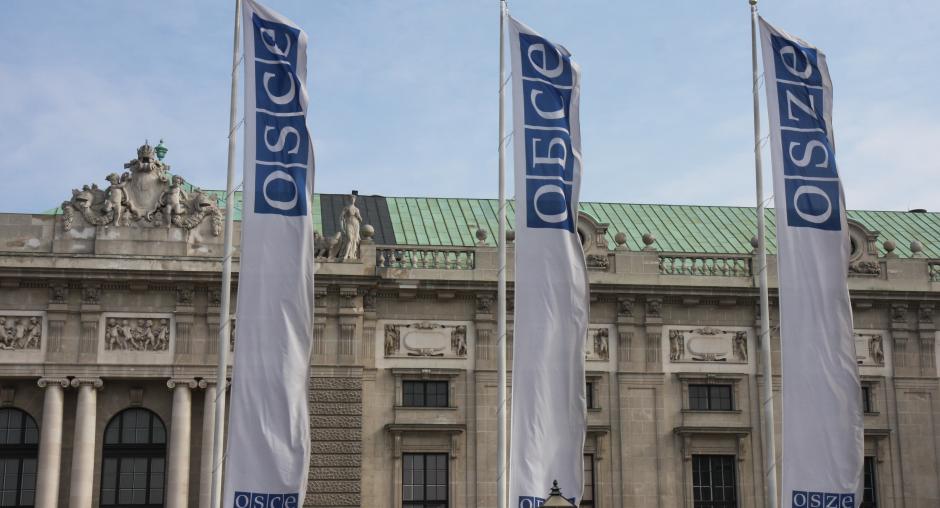
To address the need for practical experience in processing war crimes cases in Bosnia and Herzegovina (BiH), the OSCE Mission to Bosnia and Herzegovina (Mission) organized a three-day workshop on International Criminal Law and Transitional Justice (ICLTJ) from the 13 to 15 November in Mostar. The workshop concluded with in the organization of a moot court. The event brought together law students from state universities across BiH as well as legal practitioners and transitional justice experts to enhance skills, foster dialogue, and promote a deeper understanding of justice processes.
Ivo Lupis, Head of the Mission’s Human Dimension Department, emphasized that the workshop provided students with opportunities beyond merely enhancing legal skills and deepening knowledge of international criminal and humanitarian law. He stated that “Students are here to engage with complex questions and challenges that will shape the future of this country-questions about accountability, healing, and the pursuit of justice in the aftermath of conflict. You have shown that you are prepared to confront the realities of transitional justice, embracing the criminal justice system’s role in delivering not only punitive but also restorative justice and upholding human rights and the rule of law in Bosnia and Herzegovina.”
While students in Bosnia and Herzegovina study international humanitarian and criminal law theoretically, they often have limited exposure to the practical skills and broader transitional justice objectives necessary for war crimes prosecutions. Guided by experienced judges, prosecutors, and legal practitioners, students gained valuable insights into real-world challenges when it comes to prosecuting war crimes and delivering justice.
“Moot court allow students to apply theoretical knowledge in practice, developing key professional skills such as legal argumentation, interpretation of regulations, rhetoric, and analytical thinking, which give them a distinct advantage in their future legal careers,” noted Ajna Jodanovic, Professor of Public International Law and European Studies at the University of Bihać Law Faculty.
The event focused on reparations for victims, especially survivors of conflict-related sexual violence (CRSV), aimed to bridge this gap by equipping students with practical knowledge about legal mechanisms that support victim compensation and uphold survivors’ rights in the justice process.
“This experience provides young legal practitioners with critical insights into the challenges and ethical dilemmas courts face when adjudicating war crimes, as well as the role of law in reconciliation and lasting peacebuilding efforts. As a law student, I am deeply grateful to the organizers and our professors for enabling us to gain such invaluable experience and practical knowledge that will greatly benefit our future professional paths,” concluded Mirza Muminović, a student at the University of Bihać Law Faculty.
This post was originally published on this site be sure to check out more of their content.








